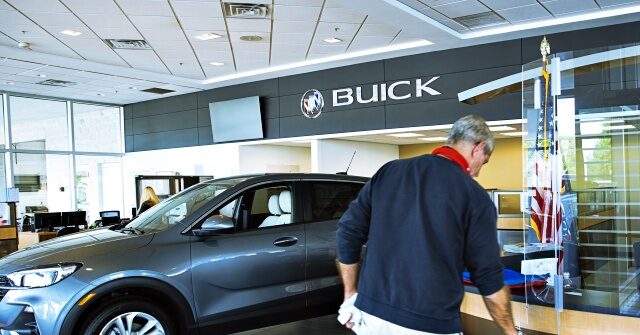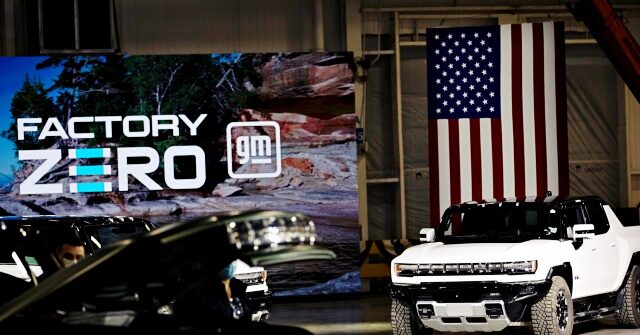Half of Buick Dealers Take Buyouts to Avoid Having to Sell GM’s Electric Cars
Almost half of Buick dealers across the United States have opted to take buyouts from General Motors (GM) to avoid having to sell Electric Vehicles (EVs) at a time when consumer reports show Americans are increasingly turned off by the cars.
According to GM, almost 1,000 of its nearly 2,000 Buick dealerships across the U.S. chose to take buyouts from the parent company rather than investing potentially millions into retooling and prepping dealers to service and sell EVs.
The move comes as U.S. car dealers are so concerned with EV sales that they are urging Biden to abandon his EV mandates and carbon emission regulations that would effectively force all-electric cars on consumers.
“The reality, however, is that electric vehicle demand today is not keeping up with the large influx of [EVs] arriving at our dealerships prompted by the current regulations. [EVs] are stacking up on our lots,” the car dealers write:
With each passing day, it becomes more apparent that this attempted electric vehicle mandate is unrealistic based on current and forecasted customer demand. Already, electric vehicles are stacking up on our lots which is our best indicator of customer demand in the marketplace.

 www.breitbart.com
www.breitbart.com
Almost half of Buick dealers across the United States have opted to take buyouts from General Motors (GM) to avoid having to sell Electric Vehicles (EVs) at a time when consumer reports show Americans are increasingly turned off by the cars.
According to GM, almost 1,000 of its nearly 2,000 Buick dealerships across the U.S. chose to take buyouts from the parent company rather than investing potentially millions into retooling and prepping dealers to service and sell EVs.
The move comes as U.S. car dealers are so concerned with EV sales that they are urging Biden to abandon his EV mandates and carbon emission regulations that would effectively force all-electric cars on consumers.
“The reality, however, is that electric vehicle demand today is not keeping up with the large influx of [EVs] arriving at our dealerships prompted by the current regulations. [EVs] are stacking up on our lots,” the car dealers write:
With each passing day, it becomes more apparent that this attempted electric vehicle mandate is unrealistic based on current and forecasted customer demand. Already, electric vehicles are stacking up on our lots which is our best indicator of customer demand in the marketplace.

Half of Buick Dealers Take Buyouts to Avoid Having to Sell GM Electric Cars
Almost half of Buick dealers have opted to take buyouts from General Motors (GM) to avoid having to sell Electric Vehicles.





